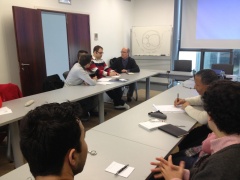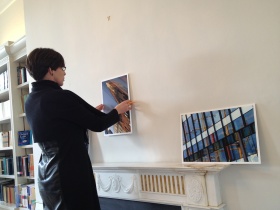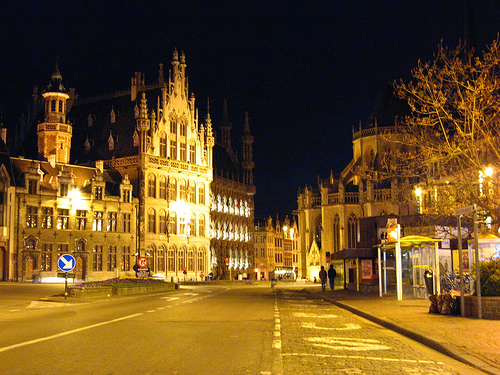In less than two days, I fly out of Dublin for a two-week “lecture tour”. I’m being sponsored though Fulbright Portugal next week and Fulbright Belgium the week after. This is part of the larger Fulbright Inter-Country Lecturing program.
We have an exciting, action-packed schedule outlined.
In addition to speaking and learning about how other people teach architecture, engineering, and education, I’ve also got a heavy load of homework to carry along.
While I’m away, I’ll hopefully find time to write three conference abstracts, finalize and submit a funding proposal, and prepare for the class I’m co-teaching in May.
Wish me luck!
PORTUGAL
Wednesday, April 10
Visit to Escola Superior de Tecnologia do Barreiro of the Instituto Politécnico de Setúbal.
Thursday, April 11
Round-table talk at Setubal Polytechnic Institute (IPS).
Friday, April 12
Presentation on Tools for Assessing Design Students’ Cognitive Development to Architecture PhD students at Instituto Superior Técnico (IST).
Monday, April 15
Presentation on The Use of Staff Learning Groups to Transform Engineering Education at the Dublin Institute of Technology to the Department of Education at the University of Aveiro and engineers from the Polytechnic School of Águeda. I’ll also meet some of the students and teachers using Problem-Based Learning at the Polytechnic School in Aveiro and/or Águeda (25km away).
Tuesday, April 16
Meet with engineering teachers at the Universidade do Minho engineering campus in Guimarães.
BELGIUM
Wednesday, April 17
Meet with the president of the European Society of Engineering Educators (SEFI), an engineering professor at Katholic University of Leuven who also directs KU-Leuven’s Teaching and Learning Department.
Thursday, April 18
Deliver a presentation 7-9 PM on Research Paradigms: Filtering What We See and Know to the architecture school (I will discuss major research paradigms and then provide examples of studies I’ve done that used methods aligned with positivism, interpretivism, constructivism, and critical realism. Presentation includes examples of work I’ve done in Africa).
Monday, April 22
Presentation on Tools for Assessing Design Students’ Cognitive Development to members of the LESEC (the Teaching and Learning Department) at KU-Leuven.
Tuesday, April 23
Interview with Fulbright Belgium for use on their websites.

























































